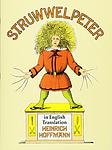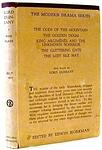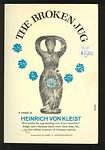Heinrich von Kleist
Heinrich von Kleist was a German poet, dramatist, novelist, and short story writer. Born on October 18, 1777, in Frankfurt (Oder), he is considered one of the most important figures in German literature. His works are known for their psychological depth, intense emotions, and often tragic themes. Some of his notable works include the play 'Penthesilea', the novella 'Michael Kohlhaas', and the drama 'The Prince of Homburg'. Despite his profound impact on German literature, Kleist struggled with financial instability and personal crises throughout his life, leading to his suicide on November 21, 1811.
Books
This list of books are ONLY the books that have been ranked on the lists that are aggregated on this site. This is not a comprehensive list of all books by this author.
-
1. Michael Kohlhaas
"Michael Kohlhaas" is a narrative about a 16th-century horse trader who, after being wronged by a nobleman, embarks on a path of revenge that leads to disastrous consequences. The protagonist's relentless pursuit of justice, despite the cost to himself and society, raises profound questions about law, morality, and the limits of individual rights. The story is a gripping exploration of the destructive power of obsession and the tragic consequences of uncompromising adherence to a personal sense of justice.
-
2. Stories
"Stories" is a collection of narratives that delve into the complexities of human nature, morality, and society. These tales, set in a variety of historical and geographical contexts, explore themes such as love, honor, sacrifice, and betrayal. The author's signature style of abrupt, dramatic storytelling and his exploration of extreme emotional states provide readers with a profound and often disquieting exploration of the human condition.
-
3. Five Plays
"Five Plays" is a collection of dramatic works by a renowned German playwright, showcasing a range of themes from personal tragedy to political satire. The plays within this anthology are known for their intense emotionality, complex characters, and exploration of moral and philosophical dilemmas. The playwright's unique style combines classical forms with a sense of modernity, often leading to abrupt and surprising plot twists. The plays challenge conventional morality and social norms, reflecting the author's preoccupation with the conflicts between individual desires and societal expectations, as well as the often tragic consequences of these tensions.
-
4. The Broken Jug
"The Broken Jug" is a comedic play centered around the chaotic proceedings of a village court in the Netherlands. The story unfolds over the course of a single day and revolves around the character of a corrupt and lecherous judge who is ironically tasked with investigating a case involving a broken jug. As the trial progresses, it becomes increasingly clear that the judge himself is intricately connected to the crime and the victim's family, leading to a series of humorous and satirical exchanges that expose the folly and hypocrisy of the legal system. The play is a classic example of the use of irony and farce to critique social and judicial corruption.
-
5. The Prince Of Homburg
The play is a dramatic exploration of duty, dreams, and the conflict between personal desires and state demands. It centers on a young, impulsive Prussian prince who, despite being a skilled commander, disobeys orders during a crucial battle, leading to an initially successful outcome but unexpected personal consequences. His actions result in him facing a death sentence for insubordination, provoking a deep examination of authority, military discipline, and individual will. As he grapples with his fate, the prince undergoes a transformation that questions the nature of honor and the cost of glory.




